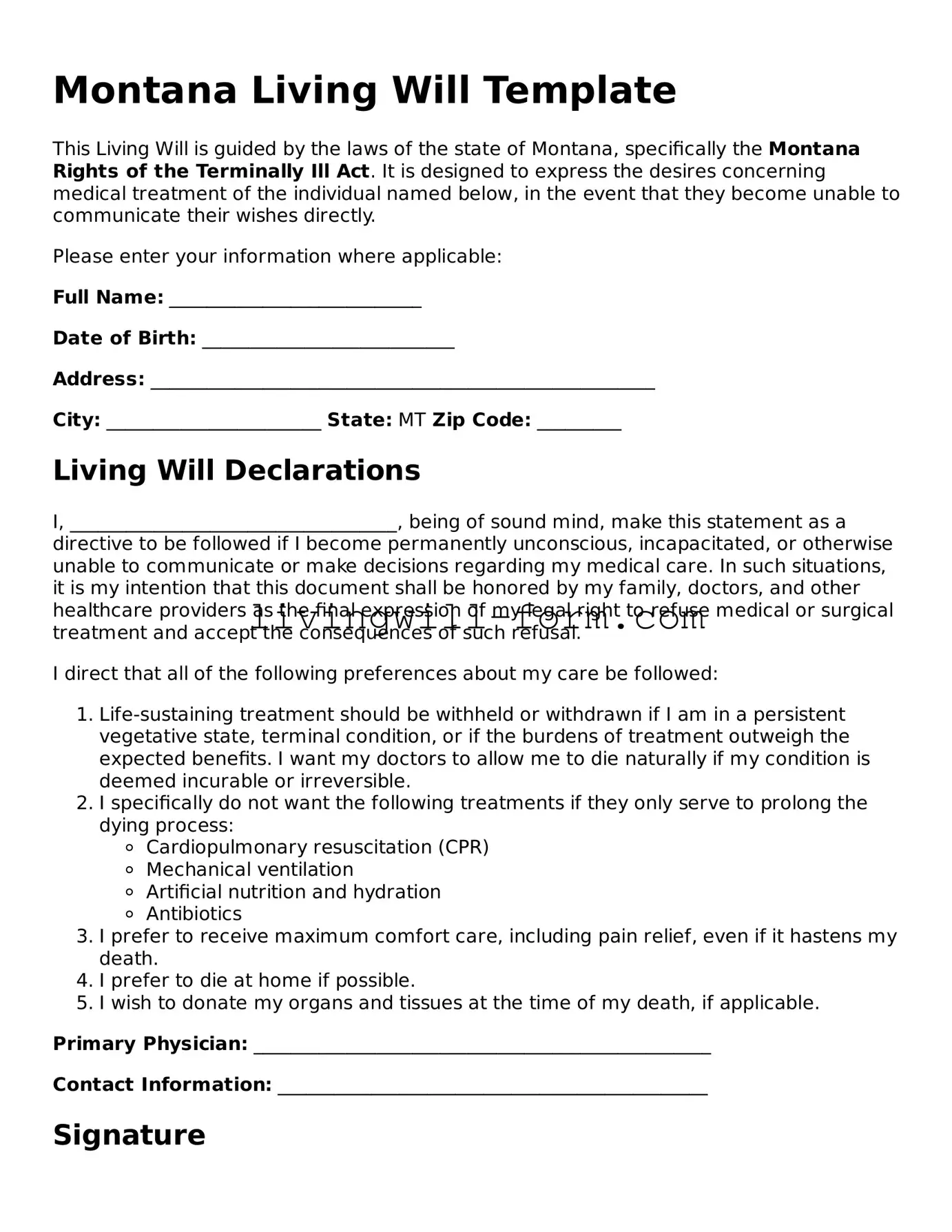Attorney-Verified Montana Living Will Template
A Montana Living Will form is a legal document that allows an individual to outline their preferences regarding medical treatment if they become unable to make decisions for themselves due to incapacitation. This essential paperwork serves as a directive to physicians and family members, ensuring that the individual's wishes are respected and followed at a critical time. With the content of the form itself being incredibly important, it's essential to understand the implications and legal requirements involved.
Access This Living Will

Attorney-Verified Montana Living Will Template
Access This Living Will

Access This Living Will
or
▼ Living Will PDF
Finish the form and move forward
Edit and finish your Living Will online fast.